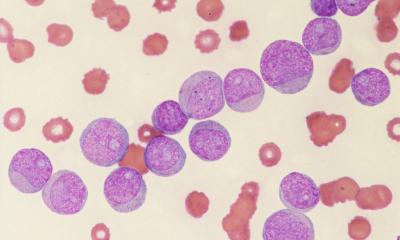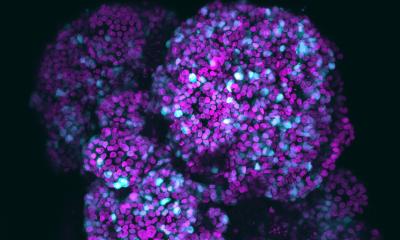Genes that controll ES-cell fate identified
Scientists have identified about two dozen genes that control embryonic stem cell fate. The genes may either prod or restrain stem cells from drifting into a kind of limbo, they suspect. The limbo lies between the embryonic stage and fully differentiated, or specialized, cells, such as bone, muscle or fat.
By knowing the genes and proteins that control a cell's progress toward the differentiated form, researchers may be able to accelerate the process – a potential boon for the use of stem cells in therapy or the study of some degenerative diseases, the scientists say.
Their finding comes from the first large-scale search for genes crucial to embryonic stem cells. The research was carried out by a team at the University of California, San Francisco and is reported in a paper in the July 11, 2008 issue of "Cell."
"The genes we identified are necessary for embryonic stem cells to maintain a memory of who they are," says Barbara Panning, associate professor of biochemistry and biophysics at UCSF, and senior author on the paper. "Without them the cell doesn't know whether it should remain a stem cell or differentiate into a specialized cell."
The scientists used a powerful technique known as RNA interference, or RNAi, to screen more than 1,000 genes for their role in mouse embryonic stem cells. The technique allows researchers to "knock down" individual genes, reducing their abundance in order to determine the gene's normal role.
The research focused on proteins that help package DNA. In the nucleus, DNA normally wraps around protein complexes called nucleosomes, forming a structure known as chromatin. This is what makes up chromosomes.
They found 22 proteins, each of which is essential for embryonic stem cells to maintain their consistent shape, growth properties, and pattern of gene expression.
Most of the genes code for multi-protein complexes that physically rearrange, or "remodel" nucleosomes, changing the likelihood that the underlying genes will be expressed to make proteins.
The main player they identified is a 17-protein complex called Tip60-p400. This complex is necessary for the cellular memory that maintains embryonic stem cell identity, Panning explains. Without it, the embryonic stem cells turned into a different cell type, which had some features of a stem cell but many features of a differentiated cell.
The scientists believe that Tip60-p400 is necessary for embryonic stem cells to correctly read the signals that determine cell type. These findings are not only important for understanding cellular memory in embryonic stem cells, but will also likely be relevant to other cell types, they say.
Inactivation of other genes disrupted embryonic stem cell proliferation. These genes were already known to have only slight influence on viability of mature cells in the body. This suggests that embryonic stem cells are "uniquely sensitive to certain perturbations of chromatin structure," the scientists report.
If other types of stem cells are also found to be sensitive to these chromatin perturbations, this could lead to novel cancer therapies in the future, Panning says.
This article is adopted by the original press release.
11.07.2008





